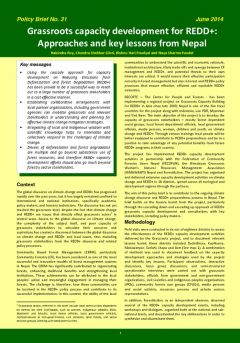Location
The Norwegian Agency for Development Cooperation (Norad) is a directorate under the Norwegian Ministry of Foreign Affairs (MFA).
Norad's strategy towards 2010 states that Norad:
- aims to be the centre of expertise for evaluation, quality assurance and dissemination of the results of Norwegian development cooperation, jointly with partners in Norway, developing countries and the international community
- will ensure that the goals of Norway's development policy are achieved by providing advice and support to the Ministry of Foreign Affairs and Norwegian foreign service missions
- will administer the agency's grant schemes so that development assistance provided through Norwegian and international partners contributes effectively to poverty reduction
These goals will be achieved on the foundation of Norad's current competencies, through highly qualified staff, a flexible and practical organisation, good administrative support functions and a working environment characterised by transparency, respect, equality, responsibility and quality.
Members:
Resources
Displaying 1 - 5 of 44Grassroots REDD+: Approaches and key lessons from Nepal
This policy brief developed by the NORAD-funded Grassroots capacity development for REDD+ Project addresses the use of the cascade approach for capacity development on REDD+, establishing collaborative arrangements with local partner organizations, and drivers of deforestation and forest degradation in Nepal.
Putting Free, Prior, and Informed Consent into Practice in REDD+ Initiatives
The principle that indigenous peoples and local communities have a right to give or withhold their Free, Prior, and Informed Consent (FPIC) to developments affecting natural resources is not new. However, experience using FPIC in REDD+ implementation is still limited in the Asia-Pacific region, and there are few materials that explain and train practitioners in its concepts and practice. There is still subjective understanding of the terms and requirements of FPIC, influenced by both cultural interpretations and interests.
How to Support Women’s Land Rights in Mozambique? Approaches and Lessons Learnt in the Work of Four Main Organisations
Contains introduction, the FAO Gender and Land Project with CFJJ, Forum Mulher in collaboration with partners, CLUSA: soy bean production and land rights, Norwegian People’s Aid with partners, recommendations. Draws attention to the need for a more concerted and focused initiative in Mozambique to support women’s land rights and recommends that Norway now responds to that challenge. The major challenge is to implement the Land Law. Individuals and communities need economic and political resources to be able to claim and secure legally established rights to land.
Improving policy design in territorial organization and land use in the soy sector in Bolivia as a means to in
General
we have supported ANAPO, FEGASACRUZ (soy and livestock producer organizations), and CSOs FAN and AVINA to advocate for the improvement and enforcement of environmental regulations, and to work together with the government to review, adapt, implement and enforce the environmental legal framework. These CSOs were convened into a MSP, and worked collaboratively with the Authority for the Supervision of Forest and Land (ABT) to improve its processes and strengthen their enforcement capacities. As a result, the ABT improved and automated the approval process of land use rights, making it more accessible, transparent and efficient (reducing the permit approval process from 20 days to 15 minutes). ABT made staff capacity available to do more field monitoring and control. They have also adopted geospatial monitoring systems to get daily updates on changes in the land use, and an early warning system for fires, that facilitates the detection of fire sources in real time. Trading company Cargill received advice to improve its legal compliance checklist as a result of the discussions held in the multi stakeholder platform. This would work as an incentive (from the market side) for farmers' compliance with the environmental regulations. The political instability in the country influenced the high rotation of staff and the absence of the National Institute for Agrarian Reform (INRA) in the dialogue platform. In 2020 we supported INRA to identify the priority improvements in relation to producers’ land titling and land planning that will be further worked out over the course of 2021.





